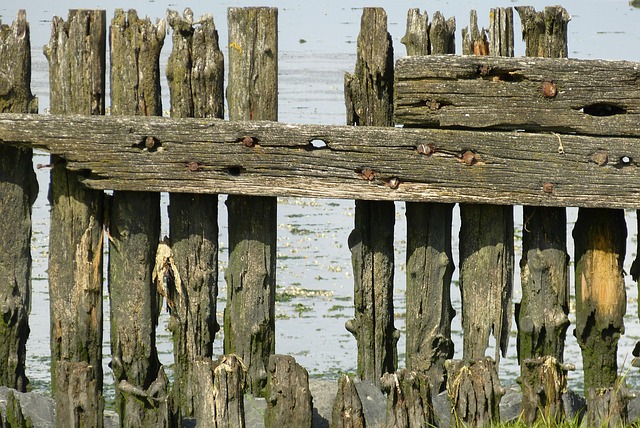In New Bedford, MA, the push for eco-friendly living has extended to landscaping choices, with fencing materials being a significant focus. As environmental awareness grows, so does the demand for sustainable alternatives to traditional fences. This article explores the latest trends in eco-friendly fencing, highlighting its numerous benefits for both homeowners and the local ecosystem. From natural materials to low-maintenance options, we delve into how New Bedford residents are making greener choices while enhancing their outdoor spaces.
- Eco-Friendly Fencing Trends in New Bedford
- Benefits of Sustainable Fencing Materials
- Natural Alternatives for Traditional Fences
- Longevity and Low Maintenance Options
- Local Availability & Installation Tips
Eco-Friendly Fencing Trends in New Bedford
In recent years, New Bedford has witnessed a growing trend towards eco-friendly fencing materials among its residents and local businesses. This shift is driven by a desire to reduce the environmental impact of traditional fencing options and to embrace more sustainable solutions. Natural, renewable resources like wood from certified sustainable forests, bamboo, and recycled plastic are becoming increasingly popular. These materials offer not only aesthetic appeal but also significant ecological benefits, including reduced carbon footprints and habitat preservation.
Local hardware stores and landscaping companies are responding to this demand by expanding their offerings of eco-friendly fencing options. This trend is further encouraged by technological advancements that enhance the durability and longevity of these natural materials, making them more viable alternatives to conventional vinyl or metal fences. As a result, New Bedford is transforming into a greener community with aesthetically pleasing and environmentally conscious fencing solutions.
Benefits of Sustainable Fencing Materials
In New Bedford, MA, opting for eco-friendly fencing materials offers a multitude of benefits that extend beyond aesthetics. These sustainable options significantly reduce environmental impact by minimizing waste generation and lowering carbon footprints associated with traditional fencing production methods. Moreover, they provide long-lasting durability, requiring less maintenance over time compared to conventional fences. This translates into cost savings for homeowners while promoting a greener community.
Sustainable fencing materials also contribute to local biodiversity and ecosystem health. Many eco-friendly options are made from renewable resources like bamboo or recycled plastic, ensuring that the fencing itself supports environmental sustainability. Additionally, these materials often blend seamlessly with natural landscapes, enhancing curb appeal while preserving the area’s ecological balance.
Natural Alternatives for Traditional Fences
In New Bedford, MA, as awareness of environmental impact grows, so does the demand for eco-friendly alternatives to traditional fencing materials. Fortunately, nature offers a plethora of options that not only reduce our carbon footprint but also enhance the aesthetic appeal of outdoor spaces. Wood, long a popular choice, can be replaced with sustainable alternatives like bamboo or recycled plastic composite boards. These materials are durable and resistant to rot and pests, making them ideal for local climates and conditions.
Bamboo, known for its rapid growth and strength, provides a robust and visually appealing fencing solution. Similarly, recycled plastic composites mimic the look of traditional wood while eliminating the need for chemical treatments and regular maintenance. Both options contribute to a greener environment by minimizing waste and conserving natural resources, making them attractive choices for residents looking to embrace eco-conscious living in New Bedford.
Longevity and Low Maintenance Options
When it comes to eco-friendly fencing, longevity and low maintenance are key benefits that homeowners in New Bedford, MA can enjoy. Materials like recycled plastic, wood composites, and certain types of metal offer durability that outpaces traditional wooden or vinyl fences. For instance, recycled plastic fencing is virtually rot-proof and requires no painting or treating, eliminating the need for harsh chemicals. Wood composites, often made from post-consumer waste, are resistant to rot, mold, and insects, and they maintain their appearance with minimal cleaning.
Low maintenance doesn’t just save time; it also reduces environmental impact by minimizing the carbon footprint associated with frequent repairs and replacements. These materials are designed to withstand various weather conditions, from harsh winters to hot summers, ensuring your fence stays strong and good-looking for years to come.
Local Availability & Installation Tips
In New Bedford, MA, eco-friendly fencing materials are increasingly accessible, with several local suppliers offering a range of sustainable options. From recycled plastic to natural wood and plant-based composites, residents have a variety of choices that align with their environmental values. Many of these materials not only reduce carbon footprint but also require less maintenance than traditional fencing, making them cost-effective in the long run.
When it comes to installation, opting for locally sourced materials can further benefit the environment and support the local economy. Homeowners should consider engaging with professional installers familiar with the unique challenges and rewards of eco-friendly fencing. Proper installation ensures the fence’s longevity and structural integrity while maximizing its environmental advantages. Tips include ensuring adequate drainage behind the fence to prevent water damage, choosing suitable fasteners and connectors for each material type, and regularly inspecting the fence for signs of wear or damage.
